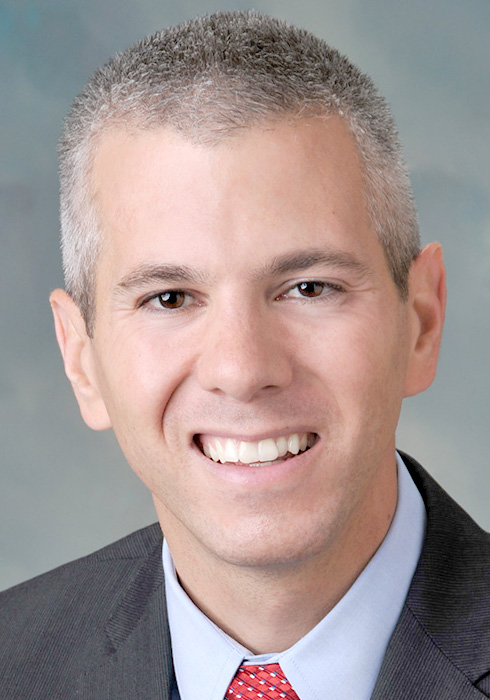
Brindisi: Tenney and House Republicans preparing to gut century-old New York law allowing state to seek action against unscrupulous financial institutions
Brindisi: “The Martin Act has protected New Yorkers from financial fraud for nearly a century, and has allowed prosecutors to force shifty financial lenders to pay settlements used to help land banks rid neighborhoods of blighted ‘zombie houses’; pre-empting it only serves to boost profits in the financial sector—and leaves New Yorkers vulnerable to exploitation.”
Assemblyman Anthony Brindisi of Utica said Congresswoman Claudia Tenney and other House Republicans should scrap proposed legislation that would gut a century-old New York law that recently allowed the state to collect $4 billion from financial institutions that overcharged mortgage customers during the housing crisis of a decade ago.
Brindisi said Tenney is co-sponsoring the Securities Fraud Act of 2018 (H.R. 5037) before the House Financial Services Committee that would allow federal regulators to supersede New York’s ‘Martin Act,’ with weaker regulations. The Martin Act of 1921 is named for its sponsor, former Utica-area Assemblyman Louis Martin. The Martin Act allows state prosecutors to seek action in cases involving financial wrongdoing. The Securities Fraud Act would provide almost exclusive federal jurisdiction over financial fraud cases involving lenders and could be voted on this week.
The Martin Act was recently used when New York state forced financial institutions taking advantage of mortgage customers during the housing crisis of a decade ago to pay about $4 billion in fines. The settlements have been used by the Greater Mohawk Valley Land Bank and other agencies across the state to purchase blighted foreclosed properties, often known as ‘Zombie Houses,’ for renovation or demolition—thus helping revitalize many neighborhoods.
“For nearly a century, The Martin Act has protected New Yorkers from financial fraud,” Brindisi said. “Today, policing Wall Street is as important as ever. The Martin Act has been a very valuable tool for state prosecutors to force shifty lenders to pay settlements. These fines have been used in the Mohawk Valley and around the state to help land banks and municipalities rid neighborhoods of blighted zombie properties.
“Pre-empting this law with spineless federal regulations only serves to boost profits for the financial industry and leaves New Yorkers vulnerable to exploitation. It’s simply greedy for House Republicans to once again back a plan that hurts average consumers and stifles neighborhood revitalization—and I’m asking that this ill-advised change to federal securities laws never sees the light of day.”
“Settlements with big banks following the foreclosure crisis have been a key element in the fight against blight across New York state,” said Greater Mohawk Valley Land Bank Executive Director Tolga J. Morawski. “Aside from the 25 land banks across the state working to help communities recover from the distressed and abandoned properties left behind by the crisis, funds have also been used to improve code enforcement in cities, including Utica and Rome.
“The money has also given our municipalities tools they had long sought to go after derelict ‘zombie properties’ that sit vacant for years, working their way through foreclosure. Our land bank alone has acquired more than 20 foreclosed properties in the last year, many of which will be demolished using these settlement funds. The loss of the Martin Act would be a blow to community development across New York state, as well as sending a message to large lenders that they could return to their old ways, acting with impunity toward the homeowners least able to fight back.
“We commend the Assemblyman for fighting to defend this valuable tool.”
“Being the treasurer of a newly formed six-county Land Bank, I am keenly aware of what the Martin Act means to our communities, as we are almost entirely funded by the proceeds New York state secured from a settlement with big banks as retribution for preying on hard-working families during the mortgage crisis,” said Joseph A. Marino, treasurer of the Greater Mohawk Valley Land Bank. “Until we become financially self-sustaining, without the Martin Act, we would lack the financing to continue our fight against ‘Zombie Properties’ and urban blight, in Utica or our region. That would be tremendously counterproductive.”
The following is the text of Assemblyman Brindisi’s letter to Congresswoman Tenney:
Dear Congresswoman Tenney:
I am writing to you in strong opposition of H.R. 5037, ‘The Securities Fraud Act of 2018,’ which would give the federal government jurisdiction over securities fraud cases. I am respectfully asking you to reconsider your co-sponsorship and support of this legislation, because I believe New York State has done an excellent job policing financial institutions.
Under the nearly century-old Martin Act, New York State was recently able to collect about $4 billion from financial institutions, following the housing crisis of a decade ago. This money is being used here in the Mohawk Valley and across New York State by regional land banks, who are purchasing blighted ‘zombie houses’ and revitalizing neighborhoods.
Pre-empting the Martin Act with federal regulations that are clearly less stringent will certainly not protect average residents looking to refinance a mortgage, or purchase their first home. The people who will benefit the most from this proposal are major lenders, who would likely see profits rise if this bill becomes law. This action would leave consumers more vulnerable to financial exploitation, and provide fewer resources to those seeking to improve our communities. For these reasons, I ask that this legislation be rejected.
If you have further questions, please feel free to call my office. Thank you very much for your interest in this issue.
Sincerely, Anthony Brindisi, Member of Assembly
